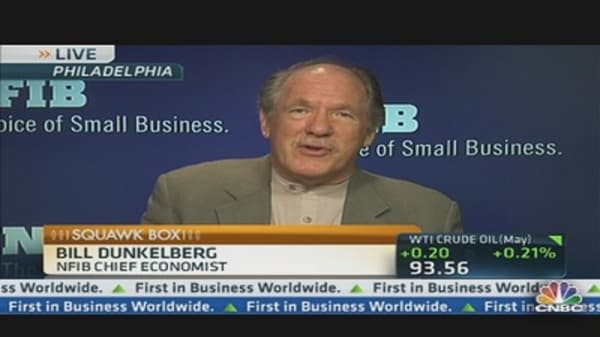As securing loans from large banks remains tricky for many mom and pops after the depths of the recession, more small-business owners are turning to small banks and other nontraditional sources of capital to grow their operations.
Just ask Dave Wheeler, owner of Manzanita Outfitters in Prescott, Ariz. He's knocked on many doors for cash infusions including traditional large banks, small merchant financing products and has even used his home as equity to help finance the business.
"It was brutal, just brutal," Wheeler said. "I've suspended paychecks from time to time. You do whatever you can to keep the doors open," he said.
Wheeler's comments were part of a small-business roundtable Wednesday with the National Federation of Independent Business and American Express, which offers a small merchants financing products and promotes an annual "shop small" initiative.
"Small business as a group, they aren't really out there borrowing," said NFIB chief economist Bill Dunkelberg.
With bank loan competition still tight, more start-ups and small-business owners are turning to small community banks for cash.
There's also growth in alternative lenders, which use technology-driven data analytics (aka fancy enterprise software) to gauge loan applicants. These lenders are also using nontraditional measures to assess applicants, including payroll and ratings from the Better Business Bureau and Yelp.
(Read More: Starved for Cash, Main Street Turns to Alternative Lenders)






